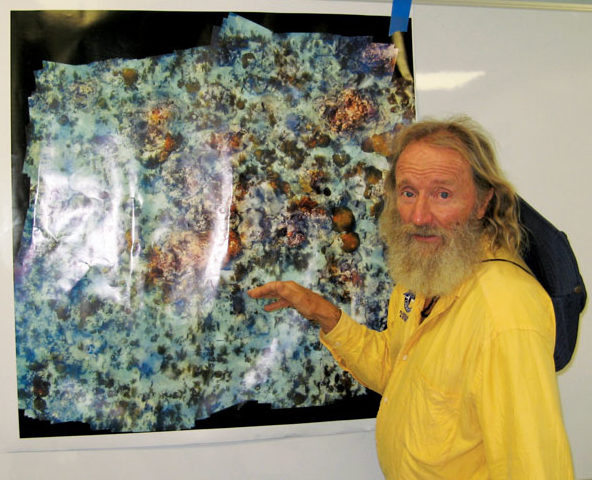
Florida Keys Community College based in Key West offers an associates degree in marine environmental technology. The Keys also have a variety of environmental and research laboratories, aquaculture/mariculture facilities, ecotourism, and conservation and restoration projects. So, if one is passionate about the marine ecosystem, is it a good field to pursue?
Several professionals based in the Keys responded to my informal survey about their careers in marine science, namely: Emily R. Hall, who earned a Ph.D. in environmental engineering sciences from the University of Florida; Dr. Hanna Koch, with a Ph.D. in evolutionary biology from the Max Planck Institute for Evolutionary Biology in Germany; Robert Nowicki who earned a Ph.D. in biology from Florida International, and Heather Page, with a Ph.D. in oceanography from Scripps Institute of Oceanography — and all of whom are working at the Mote Marine Lab in Summerland Key; as well as Brooke Denkert Black who earned her master of science degree in environmental science focusing on estuarine ecology from Florida Gulf Coast University, and Derke Snodgrass who studied limnology at the University of Central Florida.
Snodgrass said with a marine science/marine biology degree, one can work for local, state or federal agencies, pursue graduate school, work for a non-governmental organization or other non-profit organization,
In their own words, survey respondents chose the field due to: a natural affinity; as a way to learn more about fishing; a desire to be outside and to study the environment; a seventh grade, weeklong trip to the Florida Keys to study marine biology, which left no doubt as to a future career; and despite being stung by a jellyfish, having a fascination for oceans and marine life which led to volunteering at the Newport Aquarium in Kentucky and a desire to study marine invertebrates and contribute to conservation through research and education.
Koch said, “From age 10, I knew I wanted to be a marine scientist, as I was always fascinated by the marine environment, especially marine invertebrates because I thought they were the most bizarre-looking. It wasn’t until grad school that I developed a passion for evolutionary biology. The concept of change fascinates me – especially how organisms cope with changes in their environment and how evolutionary trajectories can be shaped by these changes. After my doctoral studies, I decided I wanted to combine my interests and skills from the two fields to concentrate on marine environment conservation.
If you’d like to know more about this field of study, read on!

Q: What cool marine science stuff did you do in college?
Black: My most valuable skills acquired were in the lab because field work comes naturally to me. These lab skills were basic and span all biological sciences: microscopy, histology, chemical analysis, virus isolation and culture, aquaculture and more. Lab skills built my scientific literacy to the point I can pick up a research paper from just about any field (maybe not quantum physics) and have at least a basic understanding of the author’s methods and analyses.
Hall: In grad school, I did a lot of cool work in rivers and estuaries, connecting the land to the sea. I wanted to see how we were affecting the coastal and marine environment. I got to use some cool chemical techniques to see where carbon was going.
Nowicki: I had a lot of great opportunities and learned a lot during my time at UNC-Wilmington. The most thought-provoking class was also my hardest: invertebrate zoology. Invertebrates are really cool from a biological perspective, and don’t get enough credit. I also had the chance to do fieldwork, including with a cross-Atlantic partnership in Bermuda my senior year.
Tune in next month to learn more about this field.





